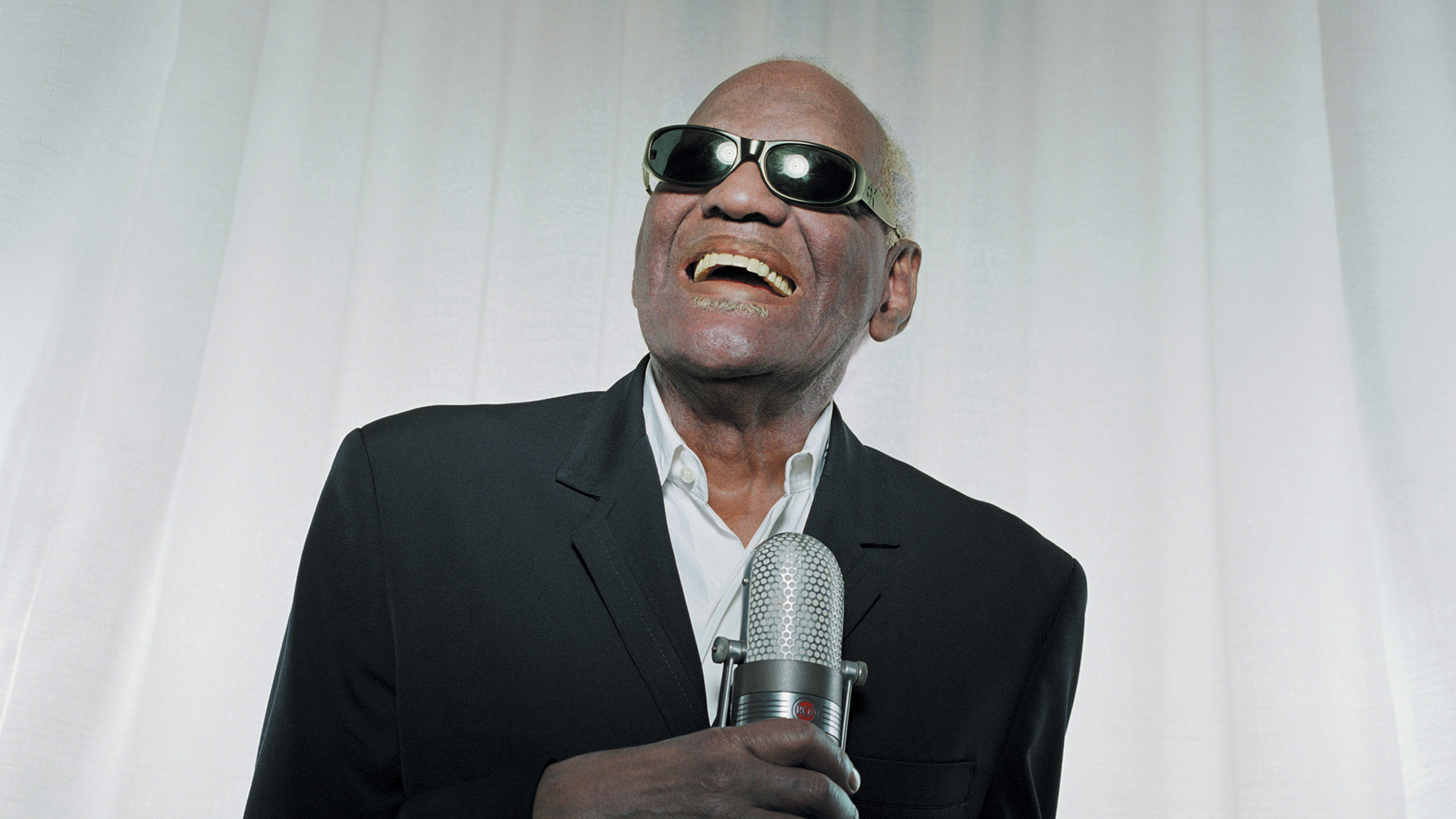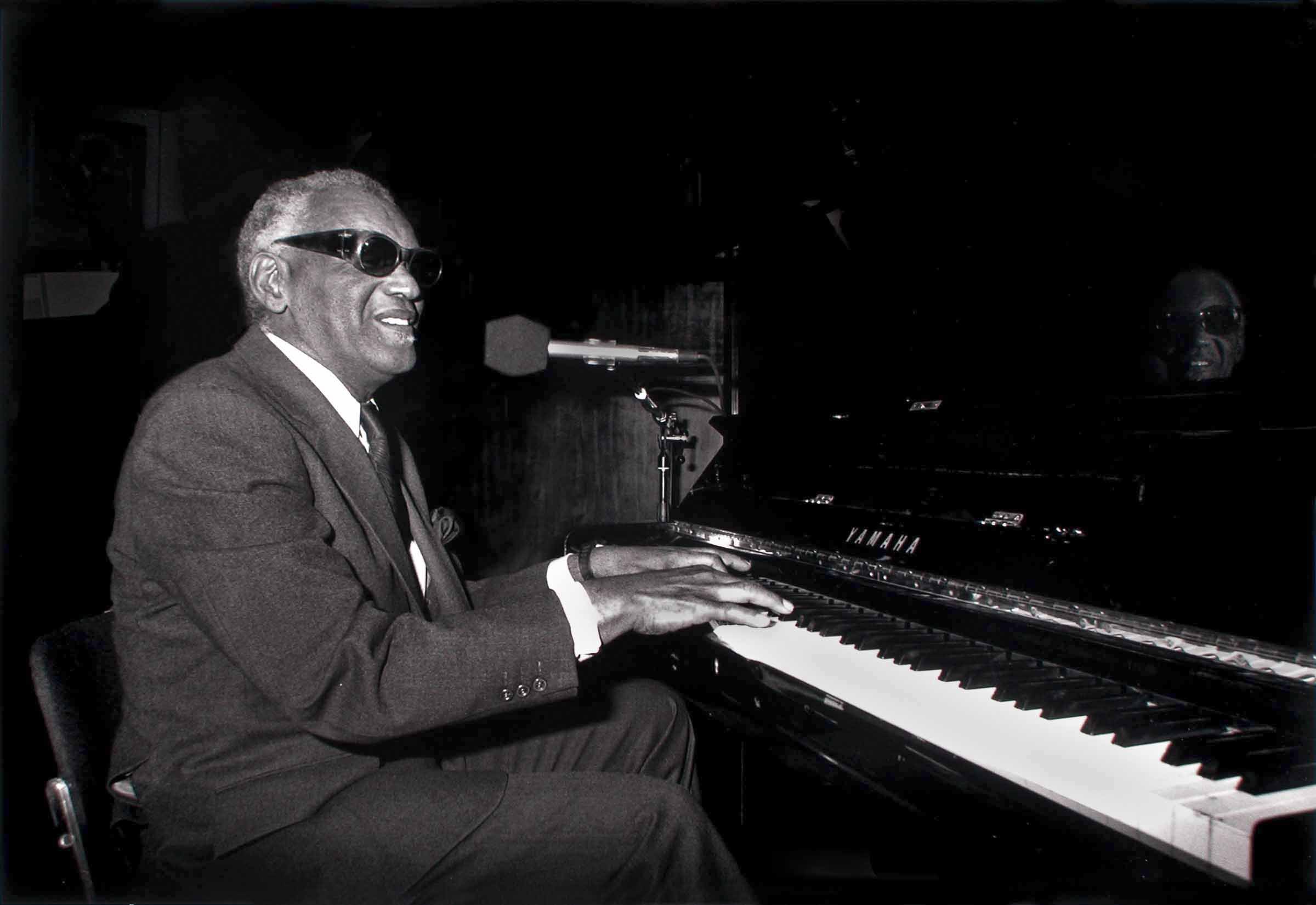Have you ever wondered who Ray Charles is? This legendary musician didn’t just sing; he revolutionized music. His voice was a blend of soul, blues, gospel, and jazz, creating a sound that touched millions. Born in humble beginnings, Ray Charles became one of the most iconic figures in the history of music. But there's so much more to his story than just the hits like "Georgia on My Mind" and "What'd I Say." So, let's dive into the life of this incredible artist.
Ray Charles isn't just a name; he's a legacy. His music has stood the test of time, influencing countless artists across generations. Known as "The Genius," his ability to fuse different genres into something entirely unique set him apart from his peers. Yet, his journey wasn't always smooth. He faced challenges, including blindness and racial discrimination, but those obstacles only fueled his passion for music.
Today, we’re going to explore the life of Ray Charles, from his early years to his rise as a musical icon. We’ll talk about his struggles, triumphs, and the impact he left on the world. So grab your headphones, press play on some Ray Charles classics, and let’s get started!
- Conns Payments A Comprehensive Guide To Simplify Your Financial Journey
- Exploring Traditional Jewish Surnames A Journey Through Heritage And Identity
Table of Contents
- Biography of Ray Charles
- Early Life and Background
- His Musical Journey
- Overcoming Blindness
- Influence on Music Industry
- Personal Life and Relationships
- Awards and Recognition
- The Legacy of Ray Charles
- Criticism and Controversy
- Conclusion: Why Ray Charles Matters
Biography of Ray Charles
Let’s kick things off with a quick overview of Ray Charles. Born Ray Charles Robinson on September 23, 1930, in Albany, Georgia, he grew up in Greenville, Florida. His childhood wasn’t easy, but it shaped him into the man and musician he became. By the age of 7, Ray lost his sight completely due to glaucoma, but that didn’t stop him from pursuing his dreams.
Here’s a snapshot of his life:
| Full Name | Ray Charles Robinson |
|---|---|
| Born | September 23, 1930, Albany, Georgia |
| Died | June 10, 2004, Beverly Hills, California |
| Genre | Soul, R&B, Blues, Jazz, Gospel |
| Instruments | Piano, Vocals |
| Major Achievements | 18 Grammy Awards, Rock and Roll Hall of Fame Inductee |
Early Life and Background
Growing up in rural Florida, Ray Charles experienced poverty and hardship. His mom, Aretha Williams, worked hard to provide for her family, teaching Ray the value of perseverance. When Ray lost his sight, his mom encouraged him to learn Braille and play the piano. She believed in his potential, even when life seemed bleak. And boy, did she turn out to be right!
- Houston Texans Vs Dallas Cowboys Discussions The Ultimate Rivalry Showdown
- Georgie Sheldon Actor The Rising Star You Need To Know About
At the Florida School for the Deaf and Blind, Ray learned classical music theory and honed his skills on the piano. This foundation would later influence his innovative style. Despite losing his mom at the age of 15, Ray stayed focused on his dream of becoming a musician.
His Musical Journey
Ray Charles started his career in the 1950s, playing in small clubs and recording for Atlantic Records. It wasn’t long before he started making waves with hits like "I Got a Woman" and "This Little Girl of Mine." What set Ray apart was his ability to blend genres seamlessly. He didn’t stick to one style; instead, he created something entirely new.
His music resonated with people because it was raw and emotional. It spoke to their struggles and joys, making it universally relatable. Ray’s voice had this magical quality that could make you cry one moment and dance the next. And let’s not forget his piano skills—man, could he play!
Overcoming Blindness
Blindness could’ve easily been a roadblock for Ray, but he turned it into a superpower. Without sight, his other senses became sharper. He could hear nuances in music that others missed. His ability to adapt and thrive despite his condition inspired countless fans worldwide.
Ray once said, “I don’t feel sorry for myself because I can’t see. I feel sorry for people who can see but don’t have vision.” That quote sums up his attitude towards life. He refused to let his disability define him, and that’s why he’s such an inspiring figure.
Influence on Music Industry
Ray Charles wasn’t just a singer or pianist; he was a trailblazer. He broke down barriers in the music industry, especially during a time when segregation was rampant. His fusion of gospel, blues, and R&B paved the way for future artists like Stevie Wonder and Prince.
One of his biggest contributions was bringing soul music to the mainstream. Songs like "Georgia on My Mind" and "Hit the Road Jack" became anthems, crossing racial and cultural boundaries. Ray also used his platform to advocate for civil rights, using his music to promote equality and justice.
Personal Life and Relationships
Behind the scenes, Ray Charles had a complex personal life. He married twice and had twelve children with different women. While his career soared, his relationships faced challenges. Like many artists, Ray struggled with addiction, particularly heroin, which affected his family life.
Despite these struggles, Ray remained devoted to his craft. He often credited his music as a source of healing and redemption. In his later years, he focused on rebuilding relationships with his children and grandchildren, ensuring they knew how much they meant to him.
Awards and Recognition
Throughout his career, Ray Charles received numerous accolades. He won 18 Grammy Awards, including a Lifetime Achievement Award in 1987. He was inducted into the Rock and Roll Hall of Fame in 1986 and received a Kennedy Center Honor in 1988.
These awards weren’t just recognition of his talent; they were a testament to his impact on the music industry. Ray’s contributions transcended music, influencing culture and society as a whole. Even today, his name is synonymous with greatness.
The Legacy of Ray Charles
Ray Charles left behind a legacy that continues to inspire new generations of musicians. His influence can be heard in the works of artists like Alicia Keys, John Legend, and Bruno Mars. Beyond music, Ray’s story teaches us the power of resilience, creativity, and passion.
His life reminds us that no matter what challenges we face, we can overcome them with determination and hard work. Ray didn’t let blindness or racism hold him back. Instead, he used his experiences to fuel his art, creating something truly extraordinary.
Criticism and Controversy
No legend is without controversy, and Ray Charles was no exception. Critics often pointed out his use of gospel elements in secular music, which some religious leaders viewed as sacrilegious. Additionally, his addiction issues and troubled personal life drew scrutiny from the media.
However, Ray always addressed criticism with grace. He believed that art should push boundaries and challenge norms. His willingness to take risks is what made his music so groundbreaking. Even his critics couldn’t deny the genius behind his work.
Conclusion: Why Ray Charles Matters
So, why does Ray Charles matter? Because he redefined what music could be. He showed us that art has the power to unite, heal, and inspire. His journey from a blind boy in rural Florida to a global icon is a testament to the human spirit.
As we reflect on his life and legacy, let’s remember the lessons he taught us. Whether it’s about overcoming adversity or pursuing our passions, Ray Charles left behind a blueprint for success. So next time you hear "What’d I Say" or "Georgia on My Mind," take a moment to appreciate the genius behind the music.
Before you go, drop a comment below and let me know your favorite Ray Charles song. Or better yet, share this article with a friend who loves music. Together, let’s keep the legacy of Ray Charles alive!
- Car Natina Reed Death Unveiling The Truth Behind A Tragic Story
- Billy Waugh Special Forces The Untold Story Of A Legendary Warrior


